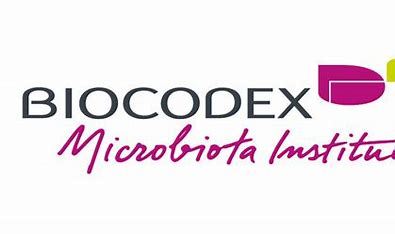Microbiota: essential to health, but limited global awareness
The International Microbiota Observatory reveals a general lack of understanding of the microbiota’s contribution to health, and underlines the essential role of healthcare professionals in imparting knowledge.
The microbiota is made up of billions of microorganisms (bacteria, viruses, fungi, etc.) that live in symbiosis with our body. We do not only have a gut microbiota, but also a skin microbiota, a mouth and lung microbiota, a urinary and vaginal microbiota, etc. All of them make an essential contribution to our health. But is everyone currently aware of the role of microbiota? Do they know how to look after their microbiota? Are they suffering from health problems that they associate with the microbiota? What role do healthcare professionals presently play in informing patients?
Little is known about the role of microbiota in health...
Only one in five people claimed to know the exact meaning of the term microbiota (21%). The gut microbiota remains the best known, with 53% of respondents stating that they were familiar with the term, although only 24% claimed to know exactly what it was. The other microbiota are much less well known, with respondents citing, in order of awareness, vaginal microbiota (45% of those interviewed knew the term, but only 18% knew exactly what it was), oral microbiota (43% knew it by name, but only 17% knew what it was) and skin microbiota (40% knew the term, but only 15% knew what it was).
Three out of four interviewees were aware of the risk of microbiota imbalance having significant health consequences (75%). Of those interviewed, 74% thought that our diet had a significant impact on our microbiota balance, 72% said the microbiota played a significant role in immune defense mechanisms.
However, more than one in three people were unaware that antibiotics affected our microbiota (34%). The vast majority of those interviewed were also unaware that certain non-digestive diseases, such as Parkinson’s, Alzheimer’s and autism, could be linked to microbiota (75%).
...and there is only a timid awareness of the “right” behaviors for looking after microbiota
They know that a balanced diet (84%), physical activity (76%) and not smoking (72%) are essential for good health, and that these behaviors will therefore have a positive impact on the microbiota.
However, when it comes to more specific behaviors, their knowledge plummets: only one in three people knew that it was better not to wash twice a day to preserve their skin’s microbiota (35%). Less than one in two women knew that douching was bad for microbiota (42%).
More than one in two people said that they had adopted everyday behaviors to preserve their microbiota balance (57%).
We should applaud this awareness, but we must put it into perspective. Firstly, because only one in seven people said they did this “a lot” (15%), and most of the others said they did it “a little” (42%). Secondly, 43% of those questioned said they had not adopted any specific behavior. The results of this International Microbiota Observatory show that much remains to be done in this area.
Microbiota explained by healthcare professionals: the key to adopting good practices!
Only one in three people said their doctor had already explained what the microbiota was and its purpose (37%). Fewer than one in two patients stated that their doctor had already explained how to maintain a balanced microbiota (44%, but only 19% had had this explained to them more than once).
How doctors inform patients when prescribing antibiotics is a good illustration of how far we still have to go. Fewer than one in two patients said their doctor had informed them of the risks of digestive problems associated with antibiotics (41%). Only one in three said their healthcare professional had informed them that taking antibiotics could upset their microbiota balance (33%). Yet patients who had been informed repeatedly of the risks had dramatically changed their behavior with regard to their microbiota. More than nine out of 10 people (95%) who had received information from their healthcare professional had subsequently adopted practices to maintain a balanced microbiota, compared with 57% of those who were not informed.
Seniors are poorly informed, despite being more vulnerable!
Although most seniors (aged 60 and over) become increasingly affected by age-related health problems, they were the age group who knew least about the gut microbiota (20%, -4 pts compared with overall results). They were also the least likely to have adopted behaviors to maintain their microbiota balance (only 50% vs. 57% overall). Here too, doctors have an essential role to play in encouraging seniors to change their habits. Yet these subjects are rarely discussed. Only one senior in three said that their doctor had already explained how to maintain a healthy microbiota balance (32% vs. 58% for the 25-34 group). One in four said they had already received an explanation of what the microbiota is (26% vs. 50% for the 25-34 age group). This is an issue we must urgently address.
The Observatory has also revealed marked contrasts between countries in terms of knowledge, behaviors, and the role of healthcare professionals.
Access the full results and country data
|
About the Biocodex Microbiota Institute The Biocodex Microbiota Institute is an international hub of knowledge that aims to foster better health by spreading information about human microbiota. To do so, the Institute addresses both healthcare professionals and the general public to raise awareness about the central role of this little-known organ. |
About this study
The Biocodex Microbiota Institute commissioned Ipsos to conduct a major international survey of 6,500 people in seven countries (France, Spain, Portugal, US, Brazil, Mexico and China), called the International Microbiota Observatory. The results were presented on June 27, 2023, on the occasion of World Microbiome Day.



